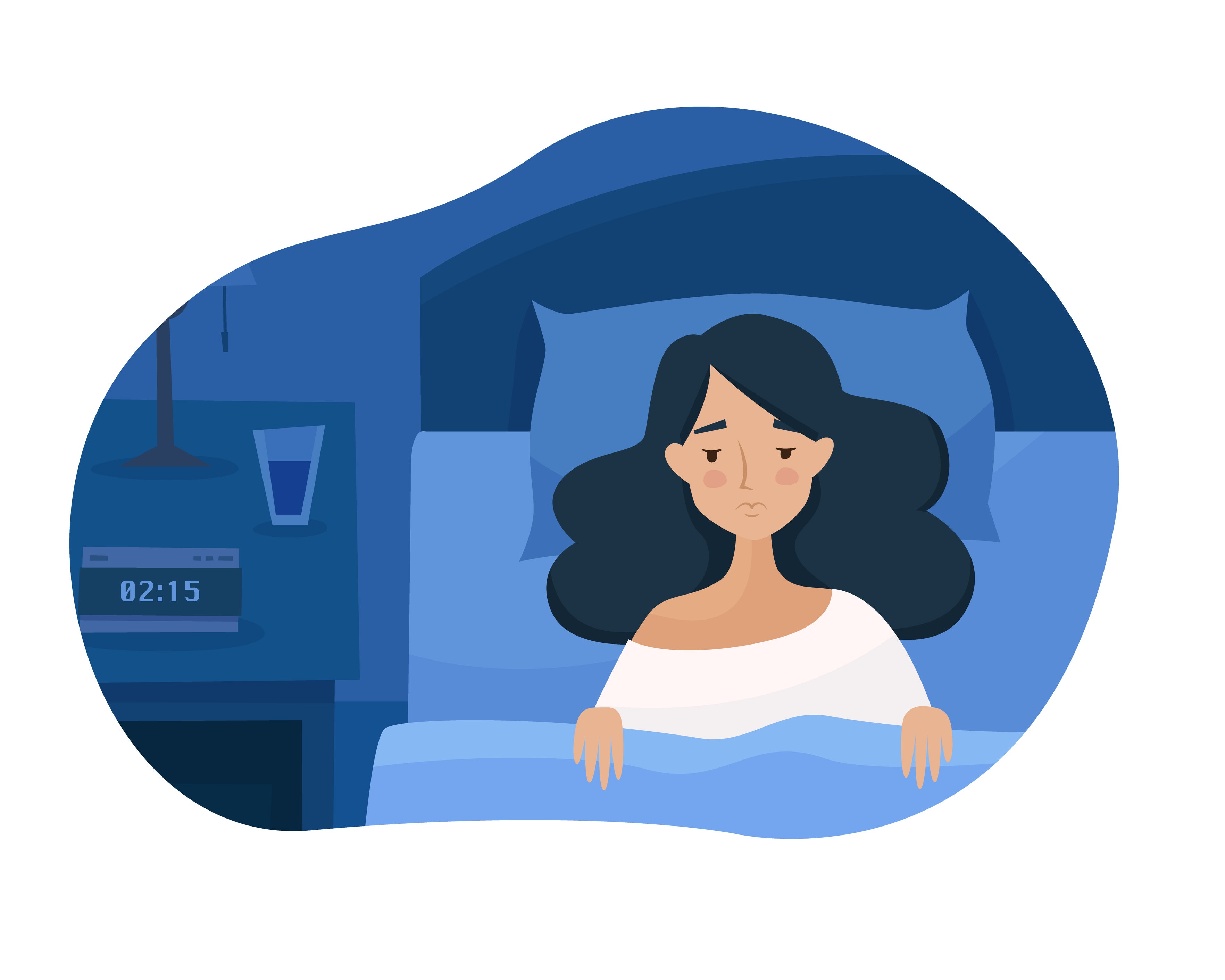The Independent's journalism is supported by our readers. When you purchase through links on our site, we may earn commission.
Often find yourself awake at 3am? Here’s how to get back to sleep
Waking up at night is normal and usually harmless, most just fall straight back to sleep, but if you’re struggling you may need to do something about it, writes Anahad O’Connor

It’s normal to wake up a few times during the night, as the brain cycles through various stages of deeper and lighter sleep. Older people also often have to get out of bed to use the bathroom one or two times during the night. Waking up at night is usually harmless. Most people have no trouble falling back asleep and may not even remember their night-time awakenings the next morning.
But if you frequently wake up in the middle of the night and find yourself struggling to fall back asleep, there could be an underlying problem. If this occurs at least three times a week over a period of at least three months, it could be chronic insomnia, says Dr Kannan Ramar, of the US Mayo Clinic and former president of the American Academy of Sleep Medicine.
Two of the primary drivers of insomnia are stress and anxiety. If you wake up and look at the clock and then start worrying about having to be rested for work the next day, paying your bills or other life stresses, it could activate your sympathetic nervous system, which controls what’s known as the fight-or-flight response. Levels of adrenaline, the so-called stress hormone, will rise, increasing your heart rate and leading to a state of heightened arousal, making it particularly difficult to ease back into sleep.
Ramar says: “You might ask yourself, ‘Is this the same time I woke up last night? Why does this always happen? Those thoughts are not helpful in terms of falling back asleep.”
If you find that you’ve been awake for 25 minutes or longer, experts advise you get out of bed and do a quiet activity that calms your mind – anything to quash the stressful thoughts that were keeping you awake. Gentle stretches or breathing exercises might help, as may meditation, which has been shown in studies to help combat chronic insomnia. You might sit on the couch and knit, or read a book or magazine in dim light. Experts recommend that you avoid reading on a device, since the blue light can suppress production of melatonin, the hormone that helps make us drowsy. You might, however, use a soothing app designed to help with sleep and meditation.
Eventually, when you start to feel tired, get back into bed and try to doze off. Then, the next day, implement the following sleep hygiene habits to increase your odds of sleeping soundly through the night:
1. Limit evening alcohol intake. In small amounts, alcohol can act as a sedative, causing you to fall asleep faster but it can also cause you to wake up in the middle of the night as your body is metabolising it. Studies show that consuming alcohol before bed can lead to poor-quality sleep.
2. Avoid caffeine after 2pm because it can linger in your system well into the evening. If you drink a cup of coffee at 3.30pm, about a quarter of the caffeine can still be in your system 12 hours later.
3. Avoid napping late in the day, as this can make it harder to fall and stay asleep at night. Taking late naps will reduce what scientists call your homeostatic sleep drive, which is essentially your body’s pressure to fall sleep in the evening. If you do want to nap during the day, make sure to do it in the morning or early afternoon and keep it short, no longer than 30 minutes. Dr Sabra Abbott of the US Northwestern University says: “The closer you are to bedtime or the longer the nap is, the more likely you are to run into trouble.”
4. Keep a strict sleep schedule. Waking up and going to bed at irregular times can throw off your body’s circadian rhythm, the innate 24-hour cycles that tell our bodies when to wake up and fall asleep, making it harder to sleep through the night. Try to get up at the same time each morning (aim to get at least 15 minutes of morning sunlight, which helps to shut down melatonin production) and get into bed at the same time in the evenings. Studies show that people who have irregular bedtime schedules are more likely to develop symptoms of insomnia.
5. If you frequently get up to use the bathroom, try to limit how much water or other fluids you drink in the evening two to four hours before bedtime.
If these measures don’t help, you might have a more significant underlying problem, such as sleep apnea or restless-legs syndrome or you might benefit from cognitive behavioural therapy.
This article originally appeared in The New York Times
Join our commenting forum
Join thought-provoking conversations, follow other Independent readers and see their replies
Comments
Bookmark popover
Removed from bookmarks